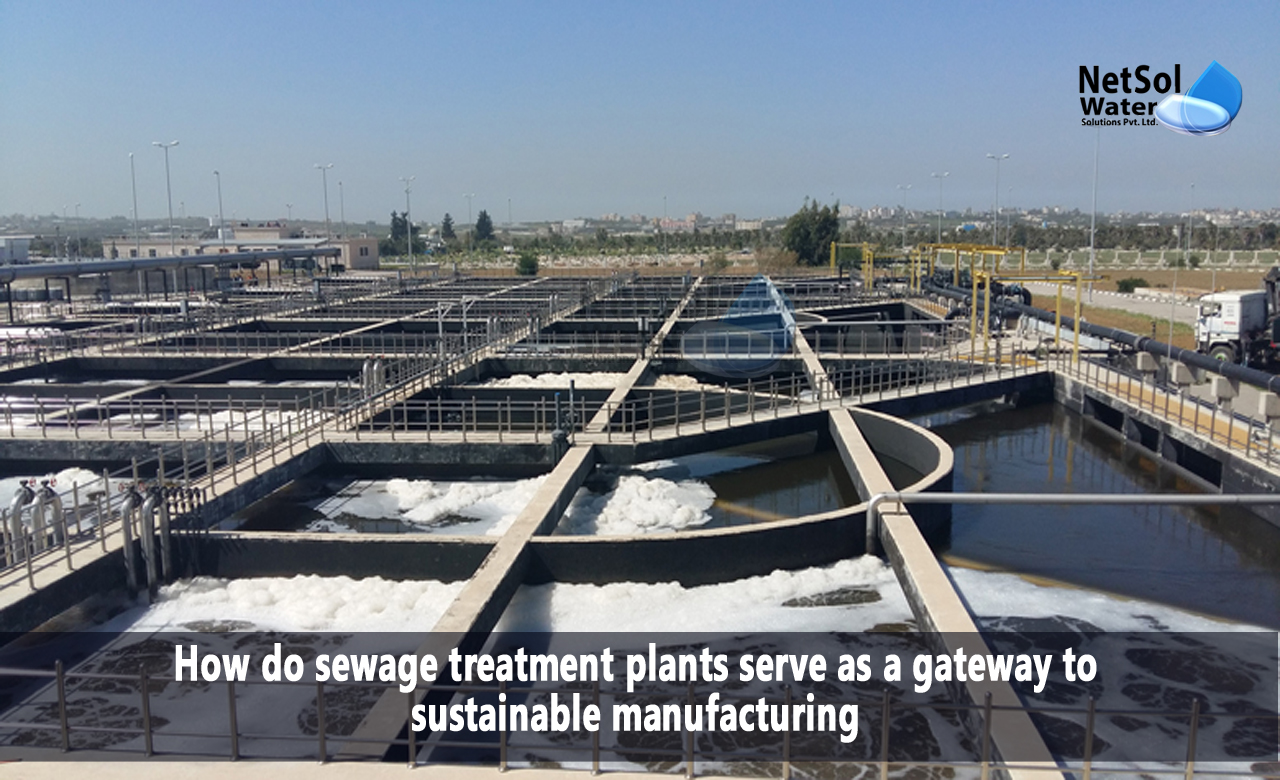How do STP Plants serve as a gateway to sustainable manufacturing?
In an era where sustainability is at the forefront of global priorities, industries are increasingly recognizing the need to adopt environmentally responsible practices. Among these practices, the implementation of sewage treatment plants (STPs) has emerged as a gateway to achieving sustainable manufacturing operations. Sewage treatment plants not only address the pressing issue of wastewater management but also pave the way for comprehensive sustainability initiatives within manufacturing facilities.
In this blog, we will delve into how sewage treatment plants serve as a gateway to sustainable manufacturing practices.
1- Efficient Wastewater Management:
One of the primary functions of sewage treatment plants is to efficiently manage wastewater generated by manufacturing processes. By treating and recycling wastewater on-site, manufacturers can minimize their reliance on freshwater sources and reduce their environmental impact. This not only conserves water resources but also decreases the strain on local ecosystems and water supplies.
Sewage treatment plants employ advanced treatment processes that remove pollutants and contaminants from wastewater. Through primary, secondary, and tertiary treatments, these plants ensure that discharged water meets strict quality standards, minimizing the adverse effects on the environment. By implementing efficient wastewater management systems, manufacturers set the stage for sustainable practices by addressing a significant environmental concern.
2- Resource Recovery and Circular Economy:
Sewage treatment plants provide an opportunity for manufacturers to embrace resource recovery and contribute to the circular economy. Throughout the treatment process, valuable resources can be extracted from wastewater and sludge. For instance, sludge can be converted into biogas through anaerobic digestion, offering an alternative and renewable energy source for manufacturing operations.
Moreover, the treated sludge can be used as a nutrient-rich fertilizer for agricultural applications, reducing the need for chemical fertilizers. This closed-loop approach not only minimizes waste generation but also maximizes resource utilization, promoting a sustainable and efficient use of resources within manufacturing facilities.
3- Energy Efficiency and Carbon Footprint Reduction:
Sewage treatment plants enable manufacturers to improve their energy efficiency and reduce their carbon footprint. By implementing energy-efficient technologies, such as anaerobic digesters and biogas recovery systems, manufacturers can harness the energy potential of wastewater and sludge.
Biogas generated during anaerobic digestion can be utilized for various purposes, including electricity generation, heating, or powering industrial processes. By replacing traditional energy sources with renewable biogas, manufacturers can reduce their reliance on fossil fuels and significantly decrease their greenhouse gas emissions. This shift towards cleaner energy sources not only contributes to a greener manufacturing process but also aligns with global efforts to combat climate change.
4- Environmental ?Stewardship and Reputation:
Adopting sewage treatment plants reflects a manufacturer's commitment to environmental stewardship, demonstrating a responsible approach towards sustainability. This commitment enhances the company's reputation and positions it as an industry leader in sustainable manufacturing practices.
Consumers today are increasingly conscious of the environmental impact of the products they purchase. By integrating sewage treatment plants into their operations, manufacturers can meet the growing demand for environmentally friendly products and services. This commitment resonates with eco-conscious consumers, leading to increased customer loyalty and a positive brand image.
Conclusion:
Sewage treatment plants serve as a gateway to sustainable manufacturing practices by addressing the critical issue of wastewater management. Implementing these plants allows manufacturers to efficiently manage wastewater, recover valuable resources, and reduce their carbon footprint. By embracing sustainable practices, manufacturers can enhance their reputation, attract environmentally conscious customers, and contribute to a more sustainable future. Sewage treatment plants are not only essential for regulatory compliance but also provide a solid foundation for comprehensive sustainability initiatives within manufacturing facilities. Embracing these practices is not only beneficial for the environment but also for the long-term success and growth of the manufacturing industry.
Netsol Water is Greater Noida-based leading water & wastewater treatment plant manufacturer. We are industry's most demanding company based on client review and work quality. We are known as best commercial RO plant manufacturers, industrial RO plant manufacturer, sewage treatment plant manufacturer, Water Softener Plant Manufacturers and effluent treatment plant manufacturers. Apart from this 24x7 customer support is our USP. Call on +91-9650608473, or write us at enquiry@netsolwater.com for any support, inquiry or product-purchase related query.



